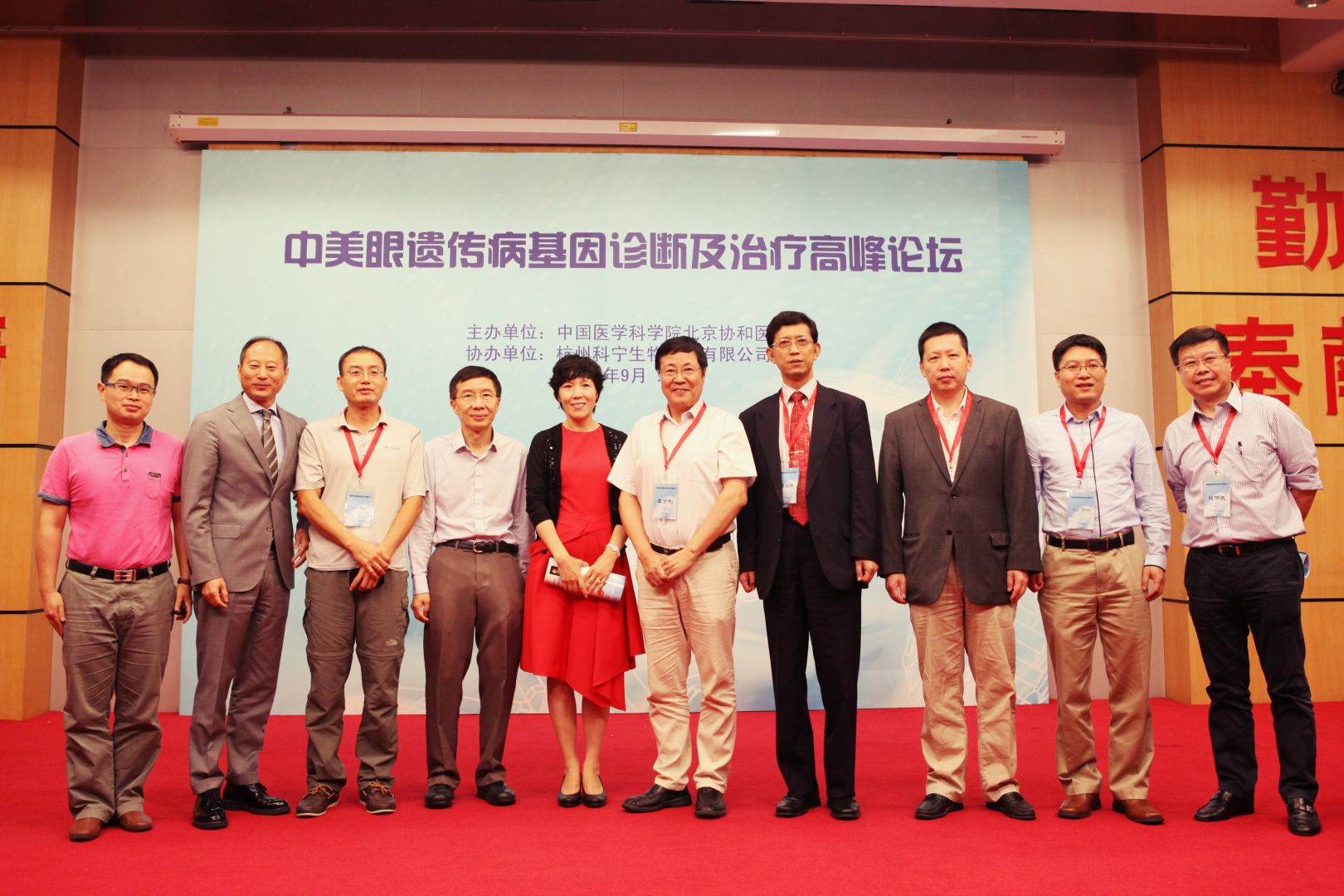On September 24-25, 2016, the China-US Hereditary Eye Diseases Genetic Diagnosis/Treatment Summit was held in PUMCH.
The rapid development of molecular genetics in recent years has reformed genetics researches, including those on eye diseases. The Department of Ophthalmology, PUMCH is one of the earliest teams in China to research into hereditary eye diseases. It collected a large cohort from Chinese patients, created a data bank of hereditary eye diseases, cooperated with many internationally advanced institutions and completed several important projects. The Summit gathered experts from home and abroad to discuss hot topics in frontier fields including the genetic diagnosis and treatment of such diseases.
First, Professor Timothy Stout from the Cullen Eye Institute at Baylor College of Medicine shared latest developments in clinical experiments of genetic treatment of hereditary retintis pigmentosa. Professor Bayron Lam from Bascom Palmer Eye Institute discussed the basic and clinical aspects of genetic treatment and related studies of Leber′s hereditary optic neuropathy. Professor Lin Gan from University of Rochester introduced potential targets in treating hereditary optic neuropathy. Professor Rui Chen from Baylor College of Medicine introduced the application of next-generation sequencing in treating hereditary eye diseases and compared the application of several high-throughput sequencing methods. Professor Henry Kaplan from University of Louisville introduced basic research results of applying stem cell therapy to retinitis pigmentosa. Professor Jijing Pang from University of Florida introduced latest developments in mouse model based genetic treatment of achromatopsia.
The Summit featured wide and in-depth discussions on basic and clinical researches on hereditary eye diseases and represented the latest developments in this field. The Department of Ophthalmology, PUMCH will continue its communication with colleagues at home and abroad to further contribute to this field.

